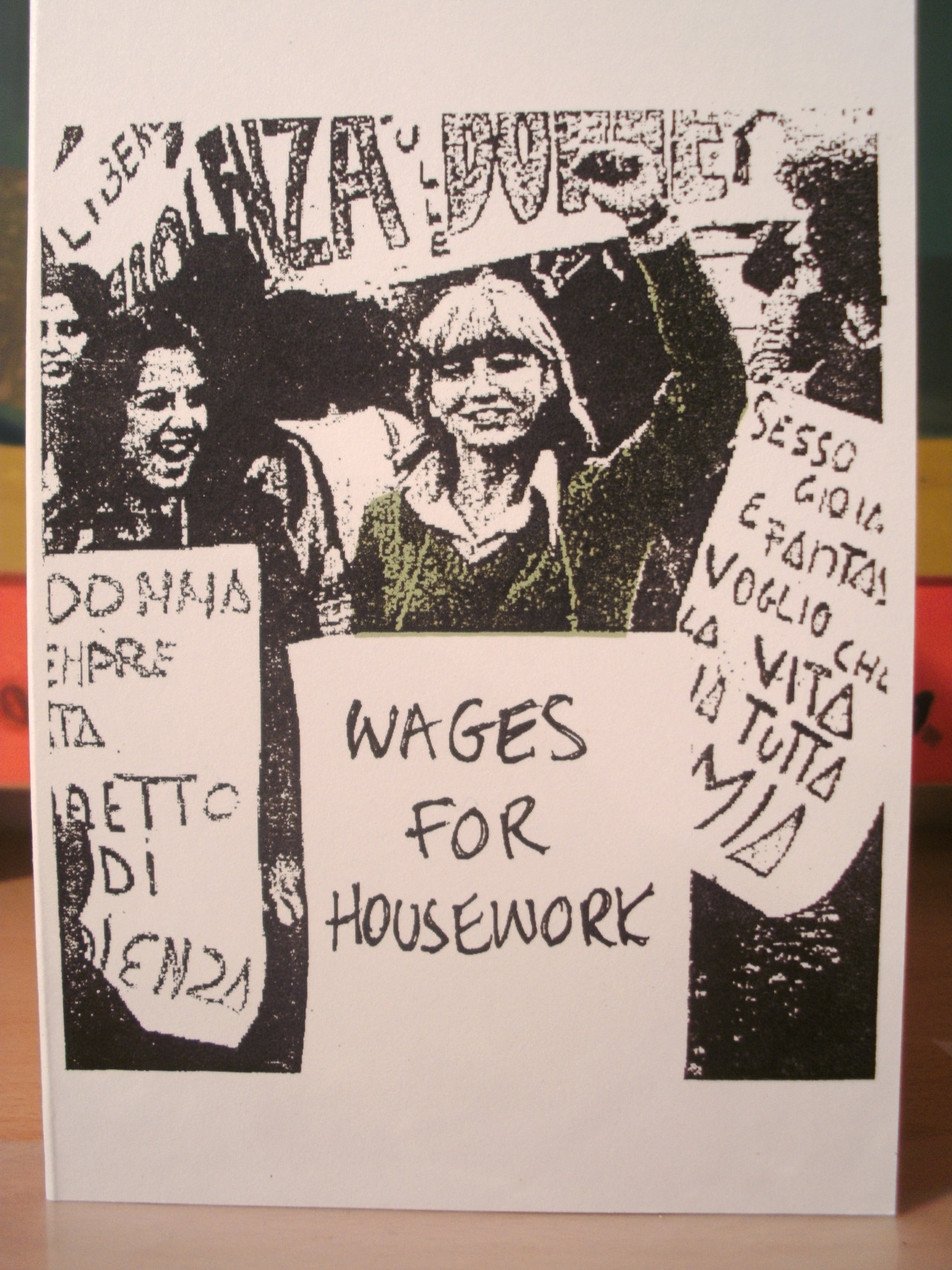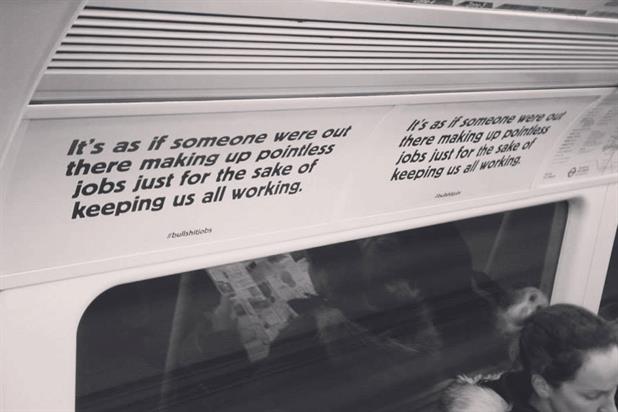
“Our epoch has invented machines which would have appeared wild dreams to the men of past ages, and of those machines we have as yet made no use. They are called ‘labour-saving’ machines… What they really do is to reduce the skilled labourer to the ranks of the unskilled, to increase the number of the ‘reserve army of labour’ – that is, to increase the precariousness of life among the workers and to intensify the labour of those who serve the machines (as slaves their masters). In a true society these miracles of ingenuity would be for the first time used for minimizing the amount of time spent in unattractive labour, which by their means might be so reduced as to be but a very light burden on each individual.” – William Morris – Useful Work Versus Useless Toil
FULLY AUTOMATED LUXURY COMMUNISM (FALC)
http://www.weareplanc.org/blog/glossary/
http://www.nationofchange.org/2015/02/23/corporate-debt-society-10000-per-household-per-year/
https://medium.com/basic-income/it-s-time-to-start-talking-seriously-about-basic-income-bb9763e1859d
http://www.theguardian.com/sustainable-business/2015/mar/12/circular-economy-myths-busted-reality-check
http://www.theguardian.com/sustainable-business/2015/mar/18/fully-automated-luxury-communism-robots-employment
by Brian Merchant / 18 March 2015
At a time when robots crowd factory lines, algorithms steer cars and smart screens litter the checkout aisles, automation is the new spectre. The robots, they say, are coming for our jobs. Let them, reply the luxury communists. Located on the futurist left end of the political spectrum, fully automated luxury communism (FALC) aims to embrace automation to its fullest extent. The term may seem oxymoronic, but that’s part of the point: anything labeled luxury communism is going to be hard to ignore. “There is a tendency in capitalism to automate labor, to turn things previously done by humans into automated functions,” says Aaron Bastani, co-founder of Novara Media. “In recognition of that, then the only utopian demand can be for the full automation of everything and common ownership of that which is automated.”
Bastani and fellow luxury communists believe that this era of rapid change is an opportunity to realise a post-work society, where machines do the heavy lifting not for profit but for the people. “The demand would be a 10- or 12-hour working week, a guaranteed social wage, universally guaranteed housing, education, healthcare and so on,” he says. “There may be some work that will still need to be done by humans, like quality control, but it would be minimal.” Humanity would get its cybernetic meadow, tended to by machines of loving grace. “Take Uber. Huge company,” Bastani says. “Its idea is that by 2030 it will have this huge global network of driverless cars. That doesn’t need to be performed by a private company. Why would you have that? In London, we have Boris bikes. Why couldn’t we have something like Uber with driverless cars provided at a municipal level without a profit motive?”
The ideology springs from a tangle of well-observed trends. Generally, the rate of technological progress and labour productivity is rising, but wages are stagnating and factories are shedding jobs. Recent research indicates that 35% of jobs in the UK are “at risk” of being automated. And MIT professors Erik Brynjolfsson and James McAfee argue persuasively in their oft-cited Second Machine Age that the robots are just getting started. The automatons of this new age offer a number of advantages beyond automation that promise to make drudgery redundant, including 3D-printing and algorithms smart enough almost to pass for human.
An age of machine-abetted plenty appears to loom around the corner. “I’m not saying we’re there yet, though in certain areas we clearly are,” Bastani says. “Take video and audio content – we’ve reached post-scarcity with that. A Spotify or an iTunes or a Wikipedia-style model doesn’t feed people, obviously. But the claim could be that this is the leading edge of a set of trends for software, but also, soon, for hardware. Because that’s attendant with the rise of solid freeform fabrication, 3D-printing, synthetic biology.”
Bastani isn’t alone in evangelising an era of mass robo-luxury. Members of the leftwing group Plan C deploy the slogan “Luxury for all” in their agitations, and a sharply-designed Tumblr, Luxury Communism, trumpets sympathetic ideas. The maxim has been showing up at student protests. Likewise, Brynjolfsson doesn’t find the idea of machine-generated populist luxury outlandish. On the contrary. “A world of increasing abundance, even luxury, is not only possible, but likely,” he says. “Many of things we consider necessities today – phone service, automobiles, Saturdays off – were luxuries in the past. Technology can create enormous bounty,” Brynjolfsson wrote, “but the road to abundance may be very rocky as existing business models and ways of creating value are disrupted.”
British luxury communism has its origins in the mid-00s protest movement, according to Plan C, when its members spotted the slogan “Luxury for All” at a demonstration in Berlin. “It seemed to us that this demand neatly summed up the aims of a modern communist movement,” say Plan C members. They believe its tenets were initially inspired by Kim Stanley Robinson’s Red Mars trilogy, wherein a socialist utopia is established on the Red Planet. A Pattern Language, a 1970s utopian tract written by three architects, was also an inspiration. Bastani says his conception of FALC is based on a modern reading of Marx’s Capital and Grundrisse.
 “We are living in times where the mafia can no longer walk with impunity through Europe”
“We are living in times where the mafia can no longer walk with impunity through Europe”
Of course, history is littered with the blueprints of unrealised techno-utopias and work-free leisure societies. Thinkers as varied as Marx and Bertrand Russell were certain science, technology and human cooperation were on the verge of liberating humanity from the bondage of labour. “The vision of giving many, if not most, ordinary citizens vastly reduced workloads is a very old notion in utopian thought and writings,” says Howard Segal, professor of the history of science and technology at the University of Maine and author of Utopias: A Brief History. He points to Edward Bellamy’s industrial army in Looking Backward (1888) and the writings of the Technocrats in the mid-1900s. But luxury communism perhaps finds a more current cultural analogue in sci-fi visions such as Star Trek, with its replicators and egalitarian politics, or the late Iain Banks’ high-tech post-scarcity Culture universe.
Eventually, Bastani sees FALC achieving something closer to that — a society with collective control over its own high-tech, work-reducing gadgets. He believes what little work will be necessary in the future, such as optimising 3D-printers and agricultural robots, will be organised much the way editors currently manage Wikipedia — in a decentralised, non-hierarchical fashion. But before then, and in order to get there, he hopes to use the luxury communist label to win converts to the cause. Ultimately, this is about politics. Consider the Atlanta rapper Migos’ hit song, Versace, he says. “You get these music videos the kids love, where it’s completely outlandish, luxury everywhere. The story of capitalism is that if you work hard and play by the rules you can get this, which is obviously bullshit. “But if you say, well look, if you want this, what you need to do is seize the means of production. We need to get automation and make it subordinate to human needs, not the profit motive. It’s about seizing the bakery rather than stealing the bread.” With robots presumably kneading the dough.
“We must do away with the absolutely specious notion that everybody has to earn a living. It is a fact today that one in ten thousand of us can make a technological breakthrough capable of supporting all the rest. The youth of today are absolutely right in recognizing this nonsense of earning a living. We keep inventing jobs because of this false idea that everybody has to be employed at some kind of drudgery because, according to Malthusian-Darwinian theory, he must justify his right to exist. So we have inspectors of inspectors and people making instruments for inspectors to inspect inspectors. The true business of people should be to go back to school and think about whatever it was they were thinking about before somebody came along and told them they had to earn a living.” – Buckminster Fuller
WHY WORK?
http://www.whywork.org/rethinking/whywork/whywork.html
https://mises.org/library/what-social-classes-owe-each-other-0
http://www.abc.net.au/religion/articles/2014/07/17/4048180.htm
https://www.jacobinmag.com/2012/10/working-for-the-weekend-2/
http://www.truthdig.com/report/item/we_need_a_new_economic_model_because_current_model_falling_apart_20150318
http://www.fastcoexist.com/3040832/world-changing-ideas/a-universal-basic-income-is-the-bipartisan-solution-to-poverty-weve-bee
Universal Basic Income: The Bipartisan Solution To Poverty We’ve Been Waiting For
by Ben Schiller / March 16, 2015
There’s a simple way to end poverty: the government just gives everyone enough money, so nobody is poor. No ifs, buts, conditions, or tests. Everyone gets the minimum they need to survive, even if they already have plenty. This, in essence, is “universal minimum income” or “guaranteed basic income”—where, instead of multiple income assistance programs, we have just one: a single payment to all citizens, regardless of background, gender, or race. It’s a policy idea that sounds crazy at first, but actually begins to make sense when you consider some recent trends.
The first is that work isn’t what it used to be. Many people now struggle through a 50-hour week and still don’t have enough to live on. There are many reasons for this—including the heartlessness of employers and the weakness of unions—but it’s a fact. Work no longer pays. The wages of most American workers have stagnated or declined since the 1970s. About 25% of workers (including 40% of those in restaurants and food service) now need public assistance to top up what they earn.
The second: it’s likely to get worse. Robots already do many menial tasks. In the future, they’ll do more sophisticated jobs as well. A study last year from Carl Frey and Michael Osborne at Oxford University found that 47% of jobs are at risk of computerization over the next two decades. That includes positions in transport and logistics, office and administration, sales and construction, and even law, financial services and medicine. Of course, it’s possible that people who lose their jobs will find others. But it’s also feasible we’re approaching an era when there will simply be less to do.
The third is that traditional welfare is both not what it used to be and not very efficient. The value of welfare for families with children is now well below what it was in the 1990s, for example. The move towards means-testing, workfare—which was signed into law by Bill Clinton in 1996—and other forms of conditionality have killed the universal benefit. And not just in the U.S. It’s now rare anywhere in the world that people get a check without having to do something in return. Whatever the rights and wrongs of this, that makes the income assistance system more complicated and expensive to manage. Up to up to 10% of the income assistance budget now goes to administrating its distribution.
For these reasons and others, the idea of a basic income for everyone is becoming increasingly popular. There has been a flurry of reports and papers about it recently, and, unusually, the idea has advocates across the political spectrum. The libertarian right likes basic income because it hates bureaucracy and thinks people should be responsible for themselves. Rather than giving out food stamps and health care (which are in-kind services), it thinks people should get cash, because cash is fungible and you do what you like with it.
The left likes basic income because it thinks society is unequal and basic income is redistributive. It evens up the playing field for people who haven’t had good opportunities in life by establishing a floor under the poorest. The “precariat” goes from being perpetually insecure to knowing it has something to live on. That, in turn, should raise well-being and produce more productive citizens.
The technology elite, like Netscape’s Marc Andreessen, also likes the idea. “As a VC, I like the fact that a lot of the political establishment is ignoring or dismissing this idea,” Albert Wenger, of Union Square Ventures, told a TED audience recently, “because what we see in startups is that the most powerful innovative ideas are ones truly dismissed by the incumbents.” A minimum income would allow us to “embrace automation rather than be afraid of it” and let more of us participate in the era of “digital abundance,” he says.
The exact details of basic income still need to be worked out, but it might work something like this: Instead of welfare payments, subsidies for health care, and tax credits for the working poor, we would take that money and use it to cover a single payment that would give someone the chance to live reasonably. Switzerland is planning to hold a referendum on a basic income this year, though no date is set. The proposed amount is $2,800 per month. But would it actually work? The evidence from actual experiments is limited, though it’s more positive than not. A pilot in the 1970s in Manitoba, Canada, showed that a “Mincome” not only ended poverty but also reduced hospital visits and raised high-school completion rates. There seemed to be a community-affirming effect, which showed itself in people making use of free public services more responsibly.
Meanwhile, there were eight “negative income tax” trials in the U.S. in the ’70s, where people received payments and the government clawed back most of it in taxes based on your other income. The results for those trials was more mixed. They reduced poverty, but people also worked slightly less than normal. To some, this is the major drawback of basic income: it could make people lazier than they would otherwise be. That would certainly be a problem, though it’s questionable whether, in the future, there will be as much employment anyway. The age of robots and artificial intelligence seems likely to hollow out many jobs, perhaps changing how we view notions of laziness and productivity altogether.
Experiments outside the U.S. have been more encouraging. One in Namibia cut poverty from 76% to 37%, increased non-subsidized incomes, raised education and health standards, and cut crime levels. Another involving 6,000 people in India paid people $7 month—about a third of subsistence levels. It, too, proved successful. “The important thing is to create a floor on which people can start building some security. If the economic situation allows, you can gradually increase the income to where it meets subsistence,” says Guy Standing, a professor of development studies at the School of Oriental and African Studies, in London, who was involved with the pilot. “Even that modest amount had incredible effects on people’s savings, economic status, health, in children going to school, in the acquisition of items like school shoes, so people felt in control of their lives. The amount of work people were doing increased as well.”
DECENTRALIZED BASIC INCOME
http://basicincome.co
http://www.resilience.me/faq.html
https://github.com/resilience-me/basicincome.co-client
https://www.indiegogo.com/projects/basicincome-co-a-peer-to-peer-safety-net-network–2
http://mybitnation.tumblr.com/post/105873406725/bitnation-announces-basic-income-application
https://www.cryptocoinsnews.com/governance-2-0-evolution-system-revolution-system/
https://www.cryptocoinsnews.com/bitnation-announces-decentralized-application-basic-income-based-bitcoin-2-0-technology-voluntary-fees/
The Decentralized Application (DApp) basicincome.co will be hosted on the Bitnation core platform – Bitnation Pangea – after its release in 2015. Basicincome.co will be a first experimental attempt to provide a system for a crypto based Universal Basic Income (UBI), entirely based on voluntary ‘taxes’ (e.g. transaction fees). Basicincome.co is the brainchild of Swedish student Johan Nygren, who invites the crypto community to engaged in the project and visit the basicincome.co GitHub repository. Bitnation leader Susanne Tarkowski Tempelhof said to CCN: “As an entrepreneur, I know money is something that comes and goes in life. I’ve been very wealthy and dirt poor — both with regular intervals throughout the years. To be able to create what is the beginning of a decentralised financial security – basic income – but without relying on a government, instead relying solely on technology and your own personal network, feels incredible. I know I’ll be the first one to sign up! What Johan Nygren has come up with is truly amazing!”
First suggested by Thomas Paine in 1795, UBI has gained more widespread popularity over the last few decades because some imagine a world where computers do most of the work, and few people have actual jobs despite an overall wealth surplus in society. Whether you agree or disagree with that vision, it’s undeniably a pleasant thought to have an unconditional minimum guaranteed income to live on. Furthermore, recent studies indicate that UBI improves both quality of life and economic growth. Several governments are contemplating the introduction of basic income schemes for all citizens. Such schemes, however, are often opposed by Libertarians because they are based on additional taxation. This scheme, however, is based only on voluntary contributions and could arguably achieve the same results without coercion.
https://www.youtube.com/watch?v=1O80r27kMa0
http://build.basicincomeproject.org/about/
A Swarm Redistribution Model for Basic Income
The backbone of basicincome.co is the swarm redistribution model. Everyone who participates in a network and partakes in its culture, consumption, and functional creative output, adds a voluntary fee to the price of goods and services purchased from the network, and the fees contribute to a basic income scheme for the temporarily struggling members of the network. “Swarm” is used as in Falkvinge’s “Swarmwise” – a semi autonomous network. Tarkowski Tempelhof clarifies: “Imagine if Facebook was eBay, and a tiny voluntary transfer fee was added to what everyone pays for objects/services purchased.” She also emphasizes that the UBI scheme is not charity, but something that everyone needs at some point in life, because there are always ups and downs.
Bitnation is a collaborative platform for DIY Governance, providing borderless, decentralized and voluntary type of blockchain-based governance applications. The Bitnation platform is set-up to host an ID system based on verification and reputation, a dispute resolution system, a Governance App and DApp library, and the ability to execute and store all your blockchain based contracts, such as land deeds, wills, child care contracts, marriage contracts, corporate incorporations, and more. Basicincome.co solve a problem people would normally think only a government could solve, but it solves it in a peaceful voluntary free market manner, which fits perfectly into Bitnation’s vision of a voluntary Governance 2.0 future.
PREVIOUSLY
CITIZENS DIVIDENDS
http://spectrevision.net/2010/06/17/like-they-do-in-alaska/
BULLSHIT JOBS
http://spectrevision.net/2015/01/09/bullshit-jobs/
FULL ROBOT EMPLOYMENT
https://spectrevision.net/2016/07/14/full-robot-employment/


